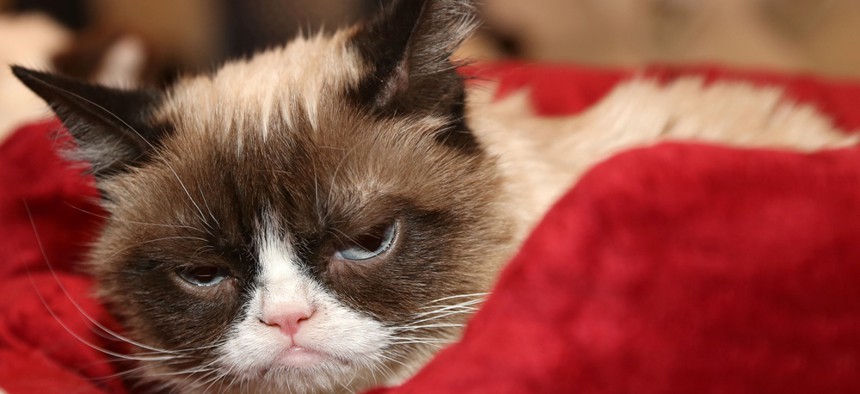
JStone / Shutterstock.com
On the Use of Memes in Government Communication
Don't rely on cat pictures, and humor can be tricky.
We begin with the assumption that government communication should be as good or better than private sector communication, for three reasons:
- The public relies on the government as a trustworthy source of information.
- Many are misinformed or under-informed about what the government does and the services it offers.
- Trust in the government by the public is extraordinarily low.
This is not only a bad situation, it is a dangerous one. From that perspective, using the communication tools that are popular among ordinary citizens has the capacity to build trust. Whereas using highfalutin language -- the equivalent of standing on a soapbox and preaching -- builds mistrust.
Memes are a popular way to communicate in the age of social media. However, there are a couple of concerns that government rightfully has about them. This article aims to address them.
Issue #1: Copyright
A meme is a derivative work based on an original piece of art. At issue is whether the meme is a form of free speech, or an illegitimate commercialization of someone else’s work.
To make a determination about whether the use is OK, the courts apply the doctrine of “fair use.” They consider: “the purpose and character of the use (e.g., was it for profit?, the nature of the copyrighted work, the amount and substantiality of the portion of the work used in relationship to the whole work, and the effect of the use upon the potential market for or value of the copyrighted work.” This is sometimes known as the “four-factor test.”
The U.S. Copyright Office offers some examples of fair use, and an entry in Wikipedia sums them up: “Commentary, search engines, criticism, parody, news reporting, research, teaching, library archiving and scholarship.” Let’s look at how government memes stack up:
- They are clearly for education, not profit.
- They are derivative works for the purpose of parody, to engage and educate the public. As the Copyright Office notes: “Copyright protects the particular way authors have expressed themselves. It does not extend to any ideas, systems, or factual information conveyed in a work.”
- Normally they represent a minimal use of the material, because they are single images.
- Memes tend to boost the market for copyrighted work because they get traffic.
Issue #2: Good Taste
If copyright law is murky, the issue of taste is even murkier. Cutting-edge communication normally pushes the boundaries in order to get attention. Whether this boundary-pushing is desirable depends on at least the following three factors:
- The urgency of the need to communicate -- if there is a crisis of some kind
- The feedback from the public -- whether it’s well-received
- The cultural environment of the agency itself
What is OK in one agency or at one time may not be OK in another. The answer is always “it depends.”
#GetCovered: http://t.co/CCIiQwqTtc, pic.twitter.com/aLgNi2Bq4l
— HHS.gov (@HHSGov) February 26, 2014What Can You Do With Memes as a Government Communicator?
New things present new challenges and memes are definitely new. They are in many ways the essence of social media, subverting the “official voice” with one’s reaction to it. They are a game-changer.
Here are some strategies for using memes. They’re based on a review of the literature as well as informal discussion and collaboration. They are intended as a starting point for your own work, not as official advice or legal counsel:
- Don’t rely on “cat pictures” -- develop an approach in which the visuals are substantively educational.
- Use memes sparingly -- balance them with words that inform.
- Humor is tricky, and can offend -- use with caution.
- Make images that are very clear in their meaning -- different people can have wildly different interpretations.
- Develop your own innocuous meme -- a great case study is Home Depot’s “Richard the Cat.”
For further reference, go to:
- https://artherworldblog.wordpress.com/2012/06/25/internet-memes-and-copyright/
- http://www.insidecounsel.com/2013/06/21/technology-internet-memes-pose-legal-questions
- http://scalablesocialmedia.com/2013/05/meme-legal-use/
- http://www.meridianstories.com/storytellers/meridian-media-mores/meridian-media-mores-on-the-doctrine-of-fair-use/
Dannielle Blumenthal, Ph.D., is a communications specialist in government, as well as a blogger and speaker on branding and social media. All opinions are her own. Follow her on Twitter at @oursocialfuture.
(Grumpy Cat image via JStone / Shutterstock.com )






